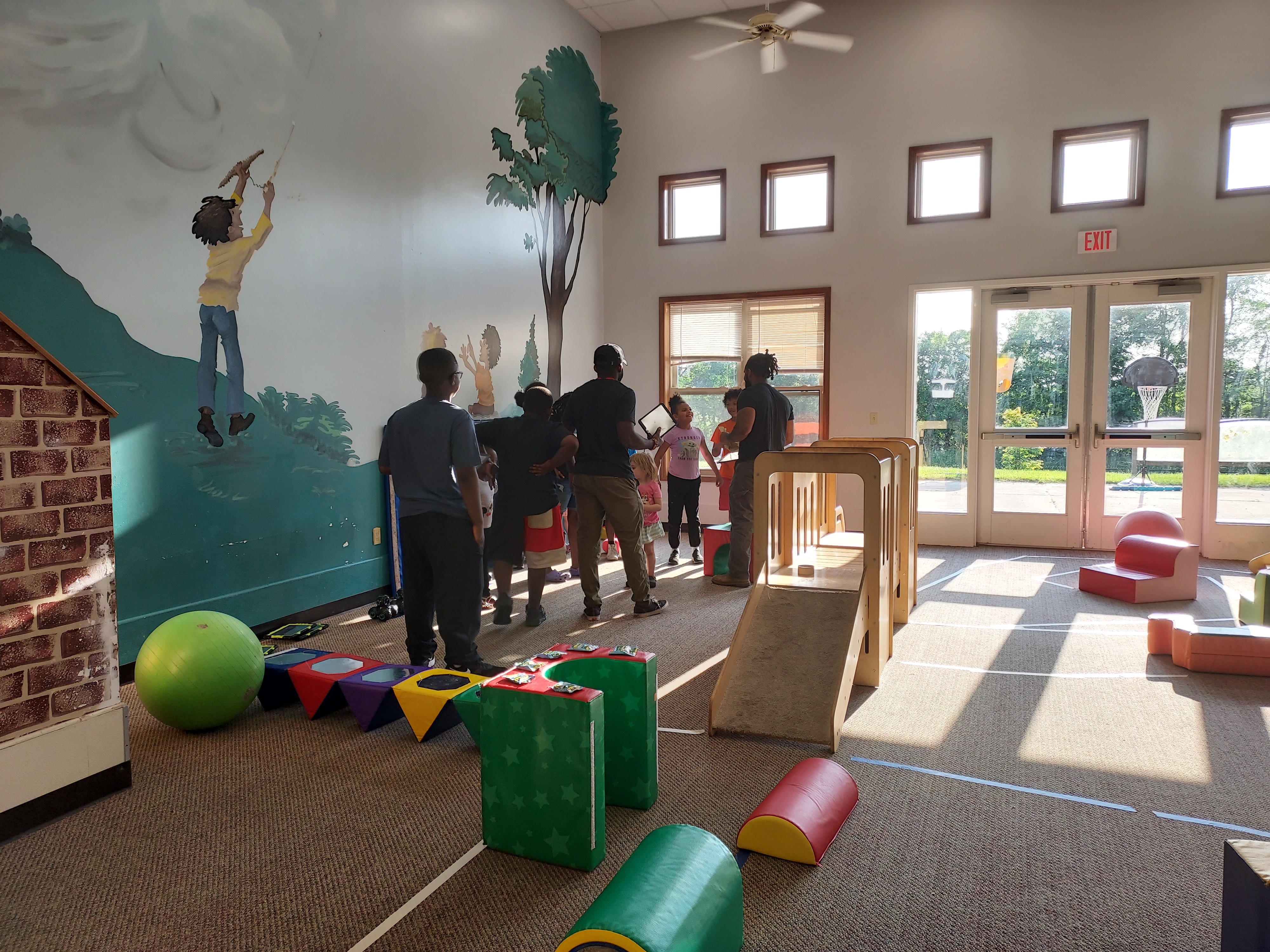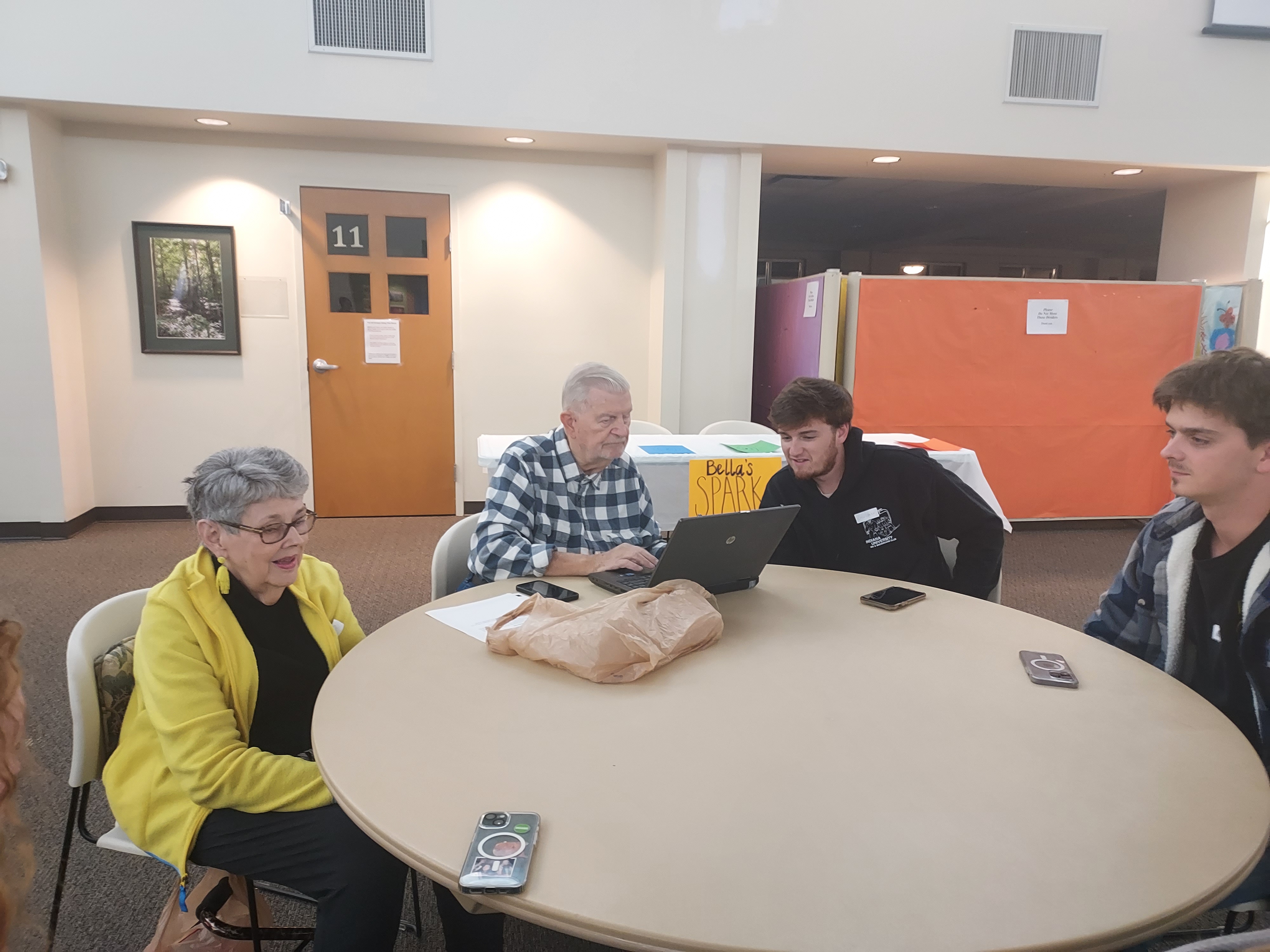
As leaders in efforts to promote economic security, Community Action Agencies are constantly innovating to improve access to education, good jobs, and the community connections needed to achieve financial well-being. Increasingly, digital skills are in demand. For this blog post, Deborah Fisher, Institute Research Associate, interviewed Katie Hopkins, Manager at South Central Community Action Agency (SCCAP), about the ways in which SCCAP promotes digital access and skills through their Thriving Connections initiative.
|
Deborah |
How does your organization support digital access and skills? |
|
Katie |
Thriving Connections has its own mini-board called a Guiding Coalition, comprised of Advisory Groups. We established a Digital Equity Advisory Group (DEAG) and invited community partners, Thriving Connections volunteers, and Thriving Connections participants to the advisory group. We also applied for grants from the City of Bloomington in 2021 and 2022 to offer Digital Action Plans to our families, which is a wraparound approach to digital equity. These grants enabled us to purchase chromebooks for each Captain so that they could reliably attend virtual Thursday Night meetings at the height of the pandemic. Also, a DEAG member conducted in-depth interviews with each Thriving Connections participant to assess needs by learning about the goals they and their families were working on, identifying barriers and potential supports. Following this process, we were able to purchase devices and equipment or participants. |
|
Deborah |
How does your organization support digital skills specifically? |
|
Katie |
Our IU Advocate for Community Engagement (ACE) built a partnership for us with a student volunteer group from the Luddy School called Teach IT. They help us with the digital literacy aspect and they are available to help participants learn how to use or troubleshoot any of the equipment. Last week, for example, they came and they talked about online privacy and safety. A few weeks before they came and they talked about AI because we have a big intergenerational group, and so there were all sorts of different questions and misconceptions and fears and worries about what AI is. So, we just had a group discussion about it. They also come on occasion and will just be available to us to do what we call ‘helpdesk,’ which means that, if our participants are having issues with the devices we purchased, have a homework question, need help navigating an Office product, or are having trouble figuring out how to turn something in, they can come and sit down with the Teach IT group. It’s pretty cool. |
|
|
|
|
Deborah |
Thank you for that. I might join the group! What motivated you to offer these services? |
|
Katie |
So, the pandemic put a big ole spotlight on the inequities within our group. We had to make sure that our participants - if we shifted to virtual – were going to have access to be able to connect to the meetings. That meant they needed to have a device to connect on, to know how to work zoom, and to use other computer skills. That's a whole new thing. And then the pandemic was also highlighting school and work issues for folks, because a lot of people were able to work from home, but employers weren't necessarily assessing whether or not everybody had the space and the tools and the connection ability to do that. And so when we saw the opportunity to apply for a grant, we went for it. |
|
Deborah |
What have you learned from working with Hoosiers on digital access and skills? |
|
Katie |
I think just that the digital world is completely an extension and added layer to basic needs and access to resources. So much is done online. And it feels like sometimes we're still in this space where some people consider internet to be a luxury. And it's not. It's basic infrastructure. Also I think I've learned a lot about the resources that are out there, like affordable Internet programs and affordable cell phone programs. We've done a lot of looking at the resources that are available to us. |
|
Deborah |
Can you share a particular story or person's experience that would help people understand why digital skills matter? |
|
Katie |
I’ve got a good one for you. I have a mom right now who is one of our participants. She is such an amazing human and she's good at anything she does. I don't know if it was inspired by the work we're doing with the digital equity stuff, but the opportunity at Code/IT Academy in Bloomington came up for her to get some certifications. She doesn't have a car, which is why remote work seems like something that we want to explore. So we talked to them about how we would work together to make sure that she could attend because they were Tuesdays and Thursdays nights from 5 to 7, which is after the Boys and Girls Club closes and she's got kids. Thriving Connections and Caresource partnered to fund private childcare and transportation, and the Mill provided space for her to study whenever she needed it and personalized job coaching. As a result, she's gotten two certifications so far and is working on the third right now, which is the one that will really open up some doors. But also her experience doing that has kind of opened up other people to look at tech. I think a lot of times those who are struggling or are in poverty, or women - and especially Black women - don't see themselves as people who would be in the tech sector, and her skills were absolutely needed in the tech sector. The people at Code/IT Academy have done a good job of pointing out her strengths and helping her see why she would be such an asset to some of these places that they're connected to. So it's been exciting to see that, and that opens up other opportunities for other participants to see what she's doing. We also had a group here in Bloomington called All-Star Imagination, and they were just coming to do cool STEM stuff with the kids. As we got to know the staff and build that relationship, we found out that they, too, had to come overcome some stereotypes and some barriers. So we invited them to have a panel discussion one night where our participants got to ask them all their questions. What was it like going to the school for this? What did you have to deal with? How do you deal with it? And they were very forthright and honest, which is exactly what we needed. So, yeah, it just kind of opens up new ideas and new opportunities and new solutions to problems that we're working on. |
|
Deborah |
That is very, very interesting. How would you like to grow as an organization in terms of supporting digital access and digital skills? |
|
Katie |
I think Thriving Connections functions within the agency as a little bit of a pilot for things. So I would like to see our agency or other agencies take what we learned and be able to offer components of that to other groups and expand the reach. Take it! Please take it. Connect everybody to All-Star Imagination. Connect everybody to Teach IT. We'll give you all the stuff that we did with our digital action plans. I would love to see more people get to do what we get to do. |
|
Deborah |
Yes, ma'am. Are there things you wish you knew about digital skills in your community? |
|
Katie |
I wish I was savvier! (Laughs) As organizations, we've been working with our families but there are also barriers within organizations with digital literacy and tech skills, including knowing how to reach people and what are the best programs to use for whatever you're doing. We taught ourselves Canva and I'm like, “Yay, I can use Canva.” So I think I would like to see organizations have the bandwidth or have the time to look at that as professional development and to get people trained on staff. |
|
Deborah |
Now, is there anything you wish policymakers knew about digital access in skills? |
|
Katie |
Policymakers. I think in terms of the skills, I see some outreach and I would love to see more. And, I'm not sure if this is a policy thing, but I have one qualm with the Affordable Connectivity Program – its marketing and its branding and its communication. Just be thoughtful about the people you are trying to reach. Make the language and stuff accessible. Also, I wish they understood that a lot of families are not able to afford to participate in a lot of activities - everything is so expensive. And so what are people doing? They are wanting to stay home and watch Netflix and be on the internet. The Affordable Connectivity Program has a limit as to like how much data you can access, and I feel like our families hit that all the time. Sometimes we've had families come to us for help with overage charges. So it ends up being that something that was supposed to be really helpful ends up creating another issue. I wish policymakers didn’t see internet as luxury, and say “so we're only going to give you this much internet.” |
|
Deborah |
Well, thank you so very much for interviewing with me. It was nice meeting you, and you opened up my eyes. I think this also helped me because as an older individual…a lot of older individuals have no idea of the things that are out there and everything is going digital. |
|
Katie |
You’re welcome. And yes, everything is going digital! We are glad to be doing our part in Community Action to support access and skills.
|



Katie and the SCCAP team, thank you so much for the work you are doing to expand digital access and help individuals build the skills needed to succeed in the digital world and to secure those higher-paying tech jobs. Deborah, I also really appreciate you capturing all of this in this interview so that others can learn from what SCCAP has done!